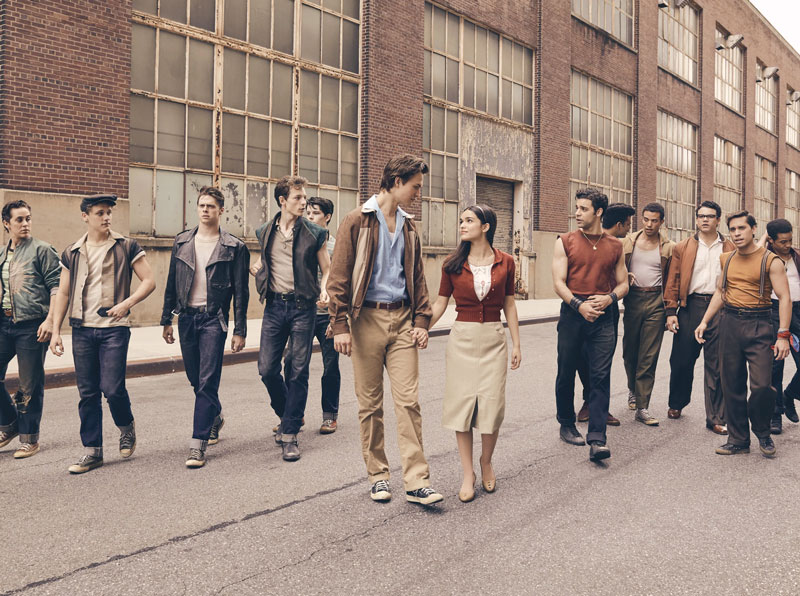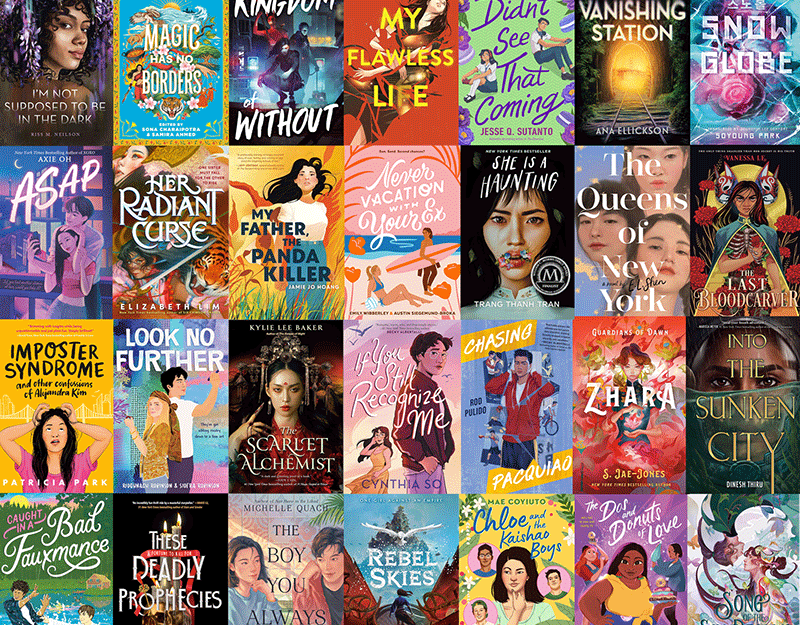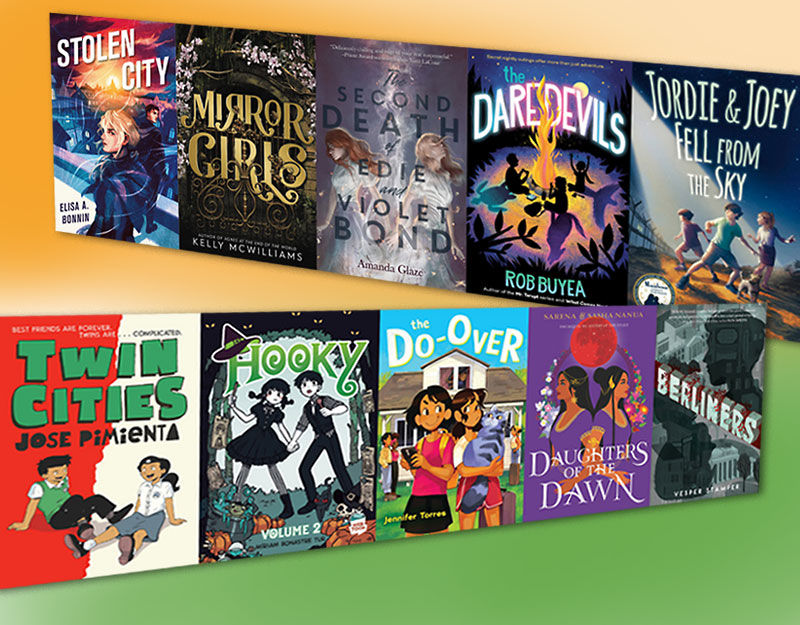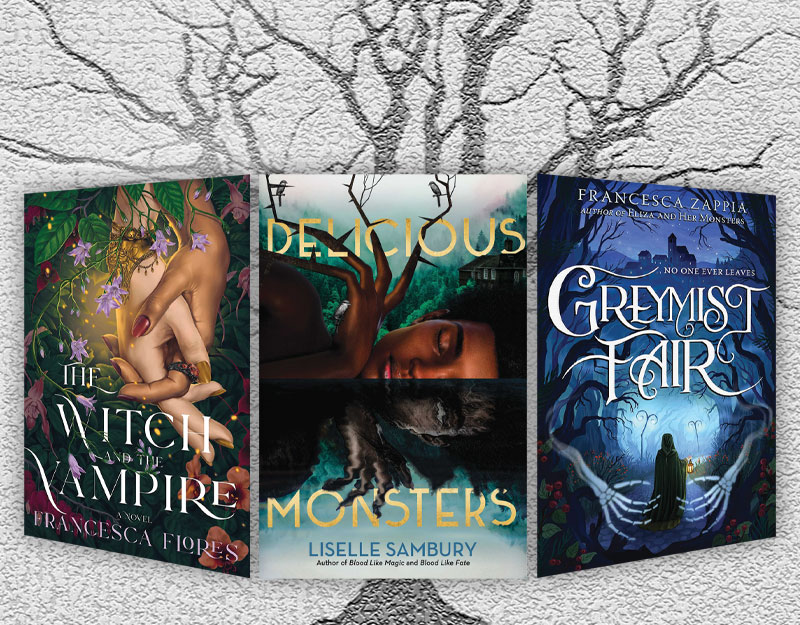Building the Stacks: What I wish administrators, publishers and authors knew about collection development
 The other day, I was interviewed by up and coming ya author Victoria Scott regarding Collection Development. Collection development is, of course, one of the biggest parts of our job. Although, ironically, I once worked at a library that put together a spread sheet of how much time you should spend each week of your 40 hours doing what and they allotted 1 hour a week to collection development. This was, of course, a pretty absurd time table. It takes a lot of time to read reviews, put together carts through your jobber, weed collections, etc. All of this helps us reach our primary goal: having collections that teens want to check out and read.
The other day, I was interviewed by up and coming ya author Victoria Scott regarding Collection Development. Collection development is, of course, one of the biggest parts of our job. Although, ironically, I once worked at a library that put together a spread sheet of how much time you should spend each week of your 40 hours doing what and they allotted 1 hour a week to collection development. This was, of course, a pretty absurd time table. It takes a lot of time to read reviews, put together carts through your jobber, weed collections, etc. All of this helps us reach our primary goal: having collections that teens want to check out and read.It must seem to others like some type of a magical process . . . new books keep appearing in the library.
I don’t know about everyone else, but I take my job to build collections very seriously. In order to have a good collection, I need sufficient funds, and in order to have sufficient funds, I need to have a well circulating collection. It can be an upward spiral or a downward spiral. But the truth is, we can’t have good circulation numbers if we don’t have good materials. This means we continually need new materials – and in a timely manner. Library systems don’t always have ordering processes in place that allow for the quick acquisition of new materials. And we all know that budgets are shrinking.
In my previous library system, we ordered materials every two weeks and it was a beautiful thing. Realize that all your copies of Catching Fire have been lost or damaged? No problem, a new order goes in every two weeks. Did you just find out that book you ordered was number two in a new trilogy? Also not a problem, you can order book one pronto. (And yes, yes I have done this more times than I would like to admit. I would love it if reviewers would make a point of mentioning that a book is in a series, what number it is in the series and, if at all possible, the other titles in the series – especially if this is book two.)
ADVERTISEMENT
ADVERTISEMENT
Here are some things I wish that administrators knew:
We can’t have a high circulating collection if I don’t have the funds and ordering processes in place to build high circulating collections. You can’t put the cart before the horse and demand it be successful. Sometimes, you have to invest in something in order to see good results. High circulating collections need time, space, and money.
Teen publishing is literally exploding these last few years. There are so many titles being published, and such high demand for the titles, we need to make sure our budgets and spaces account for that.
We need space for face out shelving. That is all.
In my interview with Victoria Scott I mention the requirement that some libraries have that a book have a professional review in order to be added to the collection. Not just a professional review, but a positive professional review which justifies spending money to add the material to the collection. But, the truth is, the Internet and inclusion of books in places like Wal-Mart and Target are changing the landscape of reading and what teens ask for. In addition, they want to see tie-in novels to their favorite tv shows and movies, which are often not reviewed. There needs to be ways to successfully include recreational reading in our collections. These type of collection development policies leave teens with two choices, read only those books that adults have declared “quality” reading materials or read nothing. I would rather that they read something, anything, with the hope that it will be the bridge to reading that finally makes them a satisfied library customer than walking out our doors unsatisfied.
We can’t keep ignoring the success of e-books. We need to look at our collection development policies and budgets to make sure we have successful ways of meeting our patrons e-book needs. Yes, teens read e-books. Even my tween has an e-book reader. One can make the argument that not everyone has an e-reader and we dilute our funds for many but reaching out to meet the needs of a few; but we also risk alienating those few – and they are growing in number – as library supporters if we don’t prove our relevancy and meet their needs. They will see no need to vote for supporting us because we no longer meet their needs and they have gone elsewhere.
The bottom line is this, if teens can’t find what they are looking for in the library, they aren’t coming back because there are so many other ways for teens to find what they want to read. We may be free, but if teens have continued unsuccessful trips to the library, we still become irrelevant.
Here are some things I wish publishers knew:
If at all possible, try and show your book cover as much as possible in your ads, online, etc. Teens judge a book by its cover and I am going to be honest, I judge a book by its cover. It is, of course, not the most important factor – but it is something that I have to realistically consider. If I have to cut an order because I have gone over my budgeted amount (which by the way is always), I am going to cut those lesser known titles that have boring or outdated covers because the bottom line is my teens won’t check them out.
If a book is a part of a series, make sure and mention that. If at all possible, mention the other titles in the series. It’s win/win for us both.
Every time you mention your book or show your cover, please make sure your ISBN is there. I can’t order a book without the ISBN (with the ordering system we use, ISBN is the easiest access point) and it muddies the process if I have to go looking for it. Along with less funds, we have less time as well.
ADVERTISEMENT
ADVERTISEMENT
All hail the power of the ARC! Although it is true that I can’t read every ARC I get, I look at them all and read a great many. Like I said in my interview with Victoria, it really helps take some of the (albeit educated) guesswork out of collection development. It also allows me to get actual teen feedback before making a purchase. This is especially true for newer authors, new series, etc. New is always a risky proposition, but you can help me take some of the risk out of it.
Here are some things I wish authors (and publishers) knew:
The other day, as I read my fifth book in a row about teens trapped somewhere – a mall, a school, wherever – I thought about diversity. Not people diversity, but book plot diversity. It is true that a lot of my teens are looking for the next Hunger Games – but that doesn’t mean it has to be a literal Hunger Games type plot. Sometimes when they say they want the next Hunger Games, it just means the are looking for the next big thing. And to be honest, I have a lot of teens who haven’t read the Hunger Games or didn’t finish the series because they just didn’t like it. There must be that temptation, I am sure, to write and publish those books that seem so similar to what is selling like hotcakes. Heck, there is that same temptation to add it to our library collections. But everything has a saturation point. And I can’t help but look at those teens coming into my library who don’t find what they need in our collections; who don’t find themselves reflected in the books that they read.
Case in point: I’m going to age myself here, but when I was growing up I used to watch this little show called The Cosby Show. It was a funny, touching show about a family that was basically just like mine. They fought over every day things. Their parents were embarrassing but for all the right reasons. And they often did stupid things. They did, of course, happen to be an African American family. But the show wasn’t about them being an African American family, it was about them being a family. Twice this week – and it’s only Tuesday as I write this – I have had tweens come in looking for books and everything that we discussed that was popular had a fair skinned main character.
One of the reasons that I loved The Downside of Being Charlie by Jenny Torres Sanchez is because it tells the story of a boy who doesn’t usually get to have his story told. Girls are not swooning over him. He does not have washboard abs and a killer smile. But Charlie’s is a story that needs to be told because there are so many Charlie’s out there.
Sometimes, it is precisely because something is unique and different that it becomes so special. We need those stories on our shelves to.
Now it’s your turn. What do you wish your administrators knew about collection development? How about authors and publishers?
Filed under: Collection Development
About Karen Jensen, MLS
Karen Jensen has been a Teen Services Librarian for almost 30 years. She created TLT in 2011 and is the co-editor of The Whole Library Handbook: Teen Services with Heather Booth (ALA Editions, 2014).
ADVERTISEMENT
ADVERTISEMENT
SLJ Blog Network
The Moral Dilemma of THE MONSTER AT THE END OF THIS BOOK
Cover Reveal and Q&A: The One and Only Googoosh with Azadeh Westergaard
Winnie-The-Pooh | Review
Parsing Religion in Public Schools
ADVERTISEMENT








Fabulous post. I hope other authors read and head your advice!